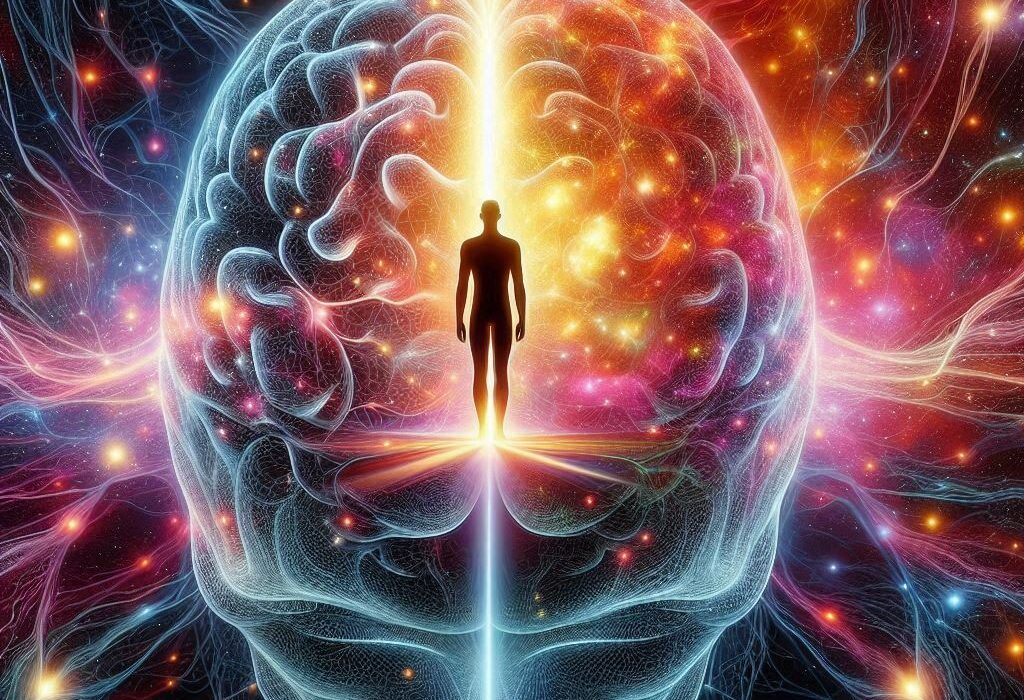The internet has changed the way we live in ways both profound and ordinary. With a few taps on a phone, we can order dinner, connect with friends across oceans, or instantly find information on almost any subject imaginable. This limitless access to knowledge has empowered people to learn, explore, and make decisions more independently than ever before. But hidden within this revolution lies a quieter, more unsettling truth: when it comes to our health, Google can be both a blessing and a curse.
Imagine the scene: you feel a twinge of chest pain, a slight rash, or a persistent headache. Concerned, you open your search engine and type in your symptoms. Within seconds, you’re faced with a sea of results—some benign, others terrifying. What began as a mild worry quickly escalates as you scroll through page after page of possible causes. The common cold morphs into pneumonia, indigestion into heart disease, a tension headache into a brain tumor. Anxiety spikes. Your pulse races. You can’t stop reading, can’t stop imagining the worst.
This spiral has a name: cyberchondria. It is the modern cousin of hypochondria—health anxiety amplified by the vast, unfiltered ocean of online medical information. In our quest for reassurance, we often find fear instead.
What Is Cyberchondria?
Cyberchondria is the term used to describe the anxiety people experience when searching online for medical information. Unlike a quick, sensible check of symptoms, cyberchondria is marked by compulsive and repetitive searching that fuels worry rather than calming it.
The word itself combines “cyber,” referring to the digital world, with “hypochondria,” the condition where individuals believe they are seriously ill despite reassurance to the contrary. While hypochondria has existed for centuries, cyberchondria is unique to the internet era. The accessibility of online health information, paired with the sheer volume of results and the inability to immediately discern credible sources, creates fertile ground for anxiety to flourish.
What makes cyberchondria particularly tricky is its paradoxical nature: people turn to the internet to feel reassured about their symptoms, yet they end up feeling worse. The search for certainty often opens the door to greater uncertainty.
The Psychology Behind Symptom Searching
Why does searching symptoms online so often lead to fear instead of comfort? The answer lies in how the human brain processes uncertainty, threat, and information.
When we notice an unusual bodily sensation—say, a tightness in the chest—our natural response is to seek an explanation. This is a survival mechanism: throughout evolution, paying attention to changes in the body was essential for survival. However, in the absence of immediate answers, the brain is wired to err on the side of caution. Better to overestimate danger than to miss it entirely.
The internet amplifies this bias. Search engines are not designed to diagnose—they are designed to deliver content. A single symptom, like a headache, can have hundreds of possible explanations, from the mundane to the catastrophic. Unfortunately, our anxious minds are drawn to the catastrophic. This is called catastrophic thinking, where the worst-case scenario looms larger than all other possibilities.
Moreover, the process of searching itself creates a feedback loop. The more anxious you feel, the more you search. The more you search, the more alarming results you find. The more alarming results you find, the more anxious you feel. This cycle feeds itself until what began as curiosity transforms into panic.
The Role of Confirmation Bias
One of the most powerful psychological forces fueling cyberchondria is confirmation bias. This is the tendency to seek, interpret, and remember information that confirms our preexisting beliefs while ignoring or dismissing information that contradicts them.
For example, if you believe your persistent cough might be lung cancer, you will likely pay more attention to search results that mention lung cancer than to those that list allergies or acid reflux. Even if the odds of the serious condition are minuscule, your brain latches onto it, reinforcing the belief that something is gravely wrong.
The internet magnifies confirmation bias because it contains information on virtually every disease imaginable. Whatever you fear, you can find an article, blog post, or forum confirming that fear. And because fear-based content often attracts more clicks, it may appear higher in search results, making it even more likely that you’ll encounter the worst-case scenarios first.
From Curiosity to Compulsion
For many people, searching online about health starts innocently. It may begin with curiosity about a minor symptom or a desire to learn more about a diagnosis. But for some, the behavior becomes compulsive.
Cyberchondria can mimic the cycle of obsessive-compulsive disorder (OCD). An intrusive thought (“What if this headache is a brain tumor?”) triggers anxiety. To reduce the anxiety, the person engages in a compulsion (searching online for answers). While this may bring temporary relief, it ultimately strengthens the cycle, making the intrusive thought return stronger the next time.
Just as compulsive handwashing reinforces fears of contamination, compulsive Googling reinforces fears of illness. Over time, the behavior can become so ingrained that the person struggles to resist the urge, even when they know it makes them feel worse.
The Role of Health Forums and Social Media
It’s not just search engines that fuel cyberchondria. Online forums, social media platforms, and patient communities can play an equally powerful role.
These spaces can offer support, education, and shared experiences—but they can also magnify anxiety. When people share stories of rare, serious conditions that began with mild symptoms, anxious readers may see their own situation reflected. “That person’s sore throat turned out to be cancer,” one might think, “so maybe mine will too.”
Social media also fosters comparison. Seeing others discuss their health struggles may heighten one’s own awareness of bodily sensations, creating a sense of vulnerability. The constant flow of health-related news, often sensationalized, further feeds the cycle of worry.
Cyberchondria and the Body-Mind Connection
Anxiety does not just live in the mind—it manifests in the body. This creates a dangerous feedback loop for people with cyberchondria.
Imagine searching online about dizziness and reading that it can be a sign of multiple sclerosis. Your anxiety spikes, and your body responds with increased heart rate, shallow breathing, and muscle tension. These physiological changes can themselves cause lightheadedness, reinforcing the belief that something is physically wrong.
This is known as the nocebo effect—the opposite of the placebo effect. Where positive expectations can improve symptoms, negative expectations can worsen them. By fearing illness, we can unintentionally generate symptoms that feel real, further deepening the cycle of anxiety and searching.
The Hidden Cost of Cyberchondria
While Googling symptoms might seem harmless, the toll it takes on mental and physical well-being can be profound.
For one, it erodes peace of mind. Instead of reassuring, it leaves individuals trapped in worry, unable to focus on daily life. Work, relationships, and sleep may all suffer under the weight of constant anxiety.
Cyberchondria can also strain the healthcare system. People who constantly worry about serious illness may seek unnecessary tests, procedures, or doctor visits, placing burdens on already stretched medical resources. While vigilance is important, over-vigilance can lead to wasted time, money, and energy.
Most painfully, cyberchondria steals the present moment. It robs individuals of the ability to trust their bodies, enjoy health when it exists, and live without the shadow of imagined illness.
Science and Research on Cyberchondria
Researchers have begun to study cyberchondria to better understand its causes and consequences. Studies have found that people with higher levels of anxiety, especially health anxiety, are more likely to develop cyberchondria. The compulsive searching tends to worsen their symptoms rather than alleviate them.
Functional brain imaging has shown that people with health anxiety may have heightened activity in brain regions associated with threat detection, such as the amygdala. This makes them more sensitive to ambiguous bodily sensations. The internet provides endless ambiguous information, which fuels this sensitivity.
Other studies have highlighted how the design of search engines and online content contributes. Because rare but serious conditions often receive disproportionate attention online, searchers are more likely to encounter them than the mundane explanations doctors usually see in practice.
Coping With Cyberchondria
Overcoming cyberchondria is not about cutting off access to the internet altogether. Instead, it involves learning how to engage with online health information in a balanced, mindful way.
One key step is recognizing the cycle. By becoming aware of the link between anxiety, searching, and worsening anxiety, individuals can begin to interrupt the pattern. This might involve setting boundaries, such as limiting searches to reputable sites like official medical organizations or restricting time spent researching symptoms.
Cognitive-behavioral therapy (CBT) has been shown to help with health anxiety and cyberchondria. CBT teaches individuals to challenge catastrophic thinking, tolerate uncertainty, and reduce compulsive behaviors. For some, mindfulness practices can also help by grounding them in the present moment and reducing the urge to seek constant reassurance.
Healthcare professionals play an important role too. Compassionate communication, clear explanations, and validation of concerns can ease the anxiety that drives compulsive searching. When patients feel heard, they are less likely to turn to the internet in desperation.
The Double-Edged Sword of Online Health Information
The internet itself is not the villain. Online health resources have saved lives by providing quick access to information, raising awareness of conditions, and empowering patients to take an active role in their care. The problem arises when information is consumed without context, balance, or guidance.
Science literacy is crucial. Learning to distinguish credible sources from unreliable ones, understanding the rarity of severe conditions, and appreciating the role of probability can help reduce the anxiety fueled by symptom searches.
Ultimately, the internet should supplement, not replace, professional medical advice. A quick search may point you in the right direction, but it should never be the final word on your health.
A Cultural Mirror of Fear
Cyberchondria is not just an individual struggle—it reflects larger cultural forces. We live in an era of medical miracles and medical uncertainty, where every new breakthrough is matched by headlines about emerging diseases. Our culture prizes control, yet health remains something we cannot fully control.
In this environment, the internet promises certainty but often delivers doubt. Cyberchondria is the shadow side of our digital age, a reminder that more information is not always better. What we need is not endless data, but wisdom—wisdom in how we interpret, trust, and act on the information before us.
Finding Peace in an Age of Uncertainty
The truth is, no one can ever have complete certainty about their health. Even doctors cannot guarantee absolute answers. Learning to live with this uncertainty is part of being human.
The challenge, then, is not to eliminate anxiety altogether, but to relate to it differently. When we feel the urge to search, we might pause and ask ourselves: “Am I seeking knowledge, or reassurance?” If it’s reassurance, the internet may only deepen the spiral.
Instead, grounding ourselves in trusted medical advice, nurturing healthy habits, and cultivating self-compassion may bring more peace than any late-night Google search ever could.
Conclusion: Beyond the Search Bar
Cyberchondria is a deeply human phenomenon. It emerges from our desire for safety, our love of knowledge, and our fear of the unknown. It shows how the very tools designed to empower us can sometimes overwhelm us.
But it also reveals something hopeful: our hunger to understand ourselves. Behind every anxious search lies a person who wants to live, who wants to protect their body, who wants to thrive. That is not weakness—that is love for life.
The internet will continue to evolve, and so will we. By approaching health information with wisdom, balance, and compassion, we can step out of the spiral of cyberchondria. We can learn to trust not only what we read, but what we feel, what we know, and what our doctors guide us toward.
Googling symptoms may never disappear. But with awareness and care, we can transform the act from a spiral of fear into a path of understanding. The key lies not in the search bar, but in how we choose to respond to the uncertainty that makes us human.






